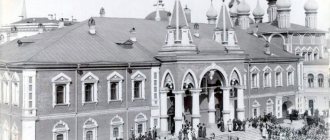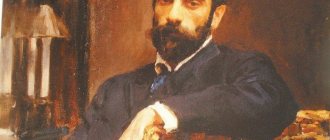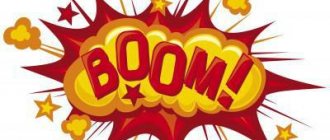Aphorisms about democracy
Democracy is a mechanism to ensure that we are governed no better than we deserve to be governed. B. Shaw
Democracy is a system when they do not yet know who to obey, but already know who not to obey. N. Berdyaev
Democracy is the worst of all political systems, but there is no better one. N. Berdyaev
The principle of democracy is virtue, since citizens are guided by a feeling of love for the fatherland and equality; the principle of monarchy is honor; the principle of despotism is fear. C. Montesquieu
The least democracy is in the laws of the crowd. W. Churchill
At the core of democracy is a little man in a cubicle with a little pencil, making a little X on a little piece of paper. W. Churchill
The first of the most democratic doctrines is that all people are interesting. G. Chesterton
Democracy is unfavorable for the emergence of strong, bright creative personalities; it creates a leveling social environment that seeks to completely absorb the individual and subjugate him. Nikolay Berdyaev
No democratic vote can share the values in which everyone is interested. EROW theorem
Democracy ceases to be a reasonable instrument as soon as fools admit their stupidity and form a party. Wilhelm Schwöbel
Democracy is the will of the majority resolved by the minority. Gennady Malkin
Democracy tends to be replaced by demagoguery. Erich Remarque
Democratic morality denies the individuality of each in the name of the specter of individuality of all others. Democratic morality inevitably degenerates into self-satisfied and power-hungry philistinism, into rudeness that does not know spiritual sensitivity and grace, into artisanal drilling and rationing. Nikolay Berdyaev
It cannot be said that in countries with representative government eternal spring reigns. But their advantage is that the snow melts there every year. Ludwig Börne (1786–1837), German publicist
Democracy, as the highest sovereign principle, cannot guarantee the individual’s inalienable, unconditional rights, since it makes the fate of the individual dependent on the random, subjectively changeable will of people. Nikolay Berdyaev
The growth of democracy in the world has fatal implications. Democratic equality is the loss of the ability to discern the qualities of spiritual life. The democratic ideology of numbers cannot but lead to the kingdom of the worst. Nikolay Berdyaev
Democracy exists not only to free people from being governed too badly, but also to deliver them from being governed too well. The autocratic Tolstoy would probably have caused the Russians much more suffering than Peter the Great. George Bernard Shaw
Democracy is essentially the recognition that we, as a society, are all responsible for each other. Heinrich Mann (1871–1950), German writer
Democracy is an abuse of statistics. Jorge Luis Borges (1899–1986), Argentine writer
Democracy is not just rule by the majority, but rule by the majority that respects the rights of the minority. Clement Attlee (1883–1967), British Prime Minister
Democracy is nothing more than an experimental form of government, and its most obvious flaw is that it counts votes rather than weighing them. William Ralph Inge (1860–1954), British clergyman, writer
Neither in modern times nor in history will we find a single example of majority rule. Jefferson Davis (1808–1889), American congressman
American democracy is like a rich man greeting the receptionist in his apartment. "Hi Tom!" (The receptionist's name is actually Jack.) “So, how are the kids, Tom?” (The receptionist has no children.) Nevertheless, both parties are satisfied. Peter Ustinov (1921–2004), English actor, director, writer
The blind leading the blind. This is called democracy. Henry Miller (1891–1980), American writer
If the people will rule, then by whom? John Selden (1584–1654), English historian
For me, parliamentary democracy is a peaceful war of all against all. Lech Walesa (b. 1943), leader of the Solidarity movement, President of Poland
Democracy: say what you want, do what you are told. John Berry (b.1915), American writer
Democracy is first and foremost a procedure. English saying
In a democracy, fools have the right to vote; in a dictatorship, fools have the right to rule. Bertrand Russell
And the demos [people] want to be a kind of monarch. Therefore, here too (...) flatterers are held in high esteem (...) (after all, a demagogue is a flatterer of the people). Aristotle
Democracy does not mean: “I am as good as you”; democracy means: “You are as good as I am.” Theodore Parker (1810–1860), American theologian and social activist
[About England]: Our democracy from the very beginning was the most aristocratic, and our aristocracy the most democratic in the world. Thomas Macaulay (1800–1859), English historian
Much of what seems to be characteristic of democracy weakens democracy. Aristotle
Democracy is not a desired state that can be reached in any way, but a way of life itself, associated with the initiative of the people. Alexander Panarin
Democracy is a political system, not a state structure. There are democratic monarchies and anti-democratic republics. Vladimir Mikushevich
Democracy is not a form of government. Democracy is a form of self-awareness of society. Absalom Underwater
Democracy is the rules of community life for free people. Alexander Kruglov
Democracy is an alluring goal, not a safe haven. After all, freedom is a constant pursuit, not a final achievement. Felix Frankfurter
The history of freedom has largely been the history of procedural control. Felix Frankfurter
Democracy is the theoretical space between bandocracy and ochlocracy. Vladimir Shoikher
Without a king in their head, the republicans feel bad. Don Aminado
The rule of a few instills fear in citizens, but does not inspire shame. Demosthenes
Democracy is not the rule of the majority, but the protection of the few. Albert Camus
Democracy means that if your doorbell rings at dawn, it's probably the milkman. Attributed to Winston Churchill
The level of democracy is measured by the distance a citizen can walk without showing identification. Unknown author
Democracy is when authorities are no longer appointed by an immoral minority, but are elected by an illiterate majority. George Bernard Shaw
What can I do alone if there are millions like me? Arkady Davidovich
Extreme democracy is the same tyranny, only divided among many. Aristotle
The two shortest books are: 1) A Guide to Arab Democracy; 2) “Everything men know about women.” Unknown author
Exporting democracy to the Middle Ages. Arkady Davidovich
Democracy is when they choose the most worthy from the unworthy. B. Krutier
Democracy is the worst type of government, apart from the others. L. Radzikhovsky
Democracy is a system in which people believe that others are as good as they are. S. Chase
Democracy is a balloon that hangs over your head and makes you stare up while other people pick your pockets. B. Shaw
Democracy means accepting that we are not governed by heroes. T. Carlyle
Democracy is a social system in which the minority realizes its personal ambitions with the consent of the majority. V. Zubkov
Democracy is a term that is used to address the people whenever they are in need. R. Fire
Democracy saved the people from lines in stores, but forced people to stand in lines before officials, some to get a tidbit of property, others for benefits, to buy a piece of bread. V. Zubkov
Democracy is based on the belief that ordinary people have extraordinary capabilities. G. Fosdick
We choose democracy not because it abounds in virtues, but only to avoid tyranny. K. Popper
In a democracy, an honest politician can only be tolerated if he is very stupid. For only a very stupid person can sincerely share the prejudices of more than half the nation. B. Russell
In a democracy, the majority rules, and the minority always tells where to turn the steering wheel. From the book “Quotes from Peter”
The main flaw of democracy is that only the party without power knows how to run the country. From the book “Quotes from Peter”
Grimaces of democracy: the people were released conditionally. V. Kolechitsky
The foundation of democracy is the indifference of the population to power. V. Zubkov
What is the difference between ordinary and popular democracy? In a popular democracy, people cannot freely say what they think, and therefore their opinions are ignored; and in an ordinary democracy, such as in the West, people are free to say what they think, and therefore their opinions are ignored. P. Ustinov
The ability of people to make laws makes democracy possible, and the tendency of people to circumvent laws makes democracy necessary. R. Niebuhr
There is no sadder fate than that of a candidate politician in a democracy. His failure is a shame to him; and luck covers him with shame. G. Mencken
Under a dictatorship, people are afraid to tell the truth to their leaders; In a democracy, leaders are afraid to tell the truth to their people. R. Needham
The Democratic Party is made up of crazy people, but no one in the Democratic Party knows it. But Republicans know this. All Republicans are crazy, but only Democrats know it. Mark Twain
A democratic state is anarchic. The “people” (demos) do not rule the country at all; Parliament governs almost nothing, the cabinet of ministers governs a little, and most of all, the bureaucracy, the only permanent element of power. L. Karsavin
Democratic government involves discussion, but it is only effective if you can silence people. K. Attlee
A democratic general is the same as a Jewish reindeer herder. A. Lebed
Unable, due to rootlessness, to pass on titles by inheritance, the democrats began to transfer positions from hand to hand to their relatives. V. Zubkov
More on the topic:
- Ideology and system
- Liberalism - quotes and aphorisms
- Quotes about radicalism
Popular:
- Success. Motivational Quotes
- good and evil
- Quotes from F.G. Ranevskaya
Comments:
Two revolutions
At first, the “power of the people” established after the French Revolution was greeted with enthusiasm. But very soon it turned out that the revolution did not awaken the natural kindness of man, but, on the contrary, released his demons.
Those who continued to support the revolution despite the guillotines and terror either argued that the previous regime was responsible for the violence, which created cruelty in people, or declared that the world could not be changed for the better without bloodshed.
The English radical philosopher Thomas Paine remained a deep supporter of the ideas of the revolution, even despite the fact that during the terror he spent ten months in prison and did not lose his head only because another prisoner was mistakenly executed instead.
The French Revolution led to harsh criticism of mob rule from conservatives. The first critical work was Edmund Burke's Reflections on the French Revolution, published before the height of the Terror.
Burke was aware of the threats posed by crowd psychology. He predicted that the revolution would end with massacres and the murder of thousands of people (including the king, queen and members of the clergy) and the rise to power of a dictator who would be able to restore law and order. The cycle of “uprising - massacre - dictatorship” was reproduced during subsequent revolutions in Russia (1917), Cuba (1958) and other countries.
The American Revolution succeeded where the French Revolution failed because its leaders recognized the dangers of “chaos and permissiveness.” In Federalist No. 55, James Madison and Alexander Hamilton wrote, “Even if every Athenian were a Socrates, an assembly of Athenians would still be a mob.”
The Founding Fathers of the United States argued that it was possible to avoid the degeneration of democracy into ochlocracy only by limiting the power of the people.
They divided powers between different branches of government so that no one had too much influence. Citizens received broad rights. Senators were elected for a term of 6 years to build long-term policies. Supreme Court judges were appointed for life so that representatives of other branches of government could not get rid of them.
Visiting the United States in 1831, Alexis de Tocqueville outlined his concerns about mob rule in Democracy in America.
In his opinion, the Constitution alone is not enough to preserve democracy. A civic culture based on local self-government (he used New England towns as an example) and broad education was also necessary.
Power of the people: signs and types
According to one of a number of definitions, democracy is understood as a way of organizing the political system that guarantees the individual to take part in political processes. In other words, if in totalitarian and authoritarian societies the main issues are decided by a group of people in power, or by the leader of the state, then in a democratic one all (or almost all) citizens are allowed to make political decisions. Restriction of their rights in this system is possible only on the basis of law.
Considering the fundamental features of democracy, we note that they include, firstly, recognition of the people as the source of power in the state. This means that the highest state power, in fact, belongs to the people, who themselves decide who to entrust it to. The second characteristic feature of a democratic political regime is the equality of citizens, that is, their equal access not only to opportunities, but also to real ways of exercising political power and their other rights in all spheres of public life.
The next feature is the subordination of the minority to the majority when making decisions and implementing them. It should be noted that not all researchers consider this feature to be consistent with the traditions of democracy. In American political philosophy it is often said that democracy is when two wolves and one lamb decide what is for dinner tonight. In fact, the fact that the minority must obey the majority does not mean that the former has no rights. They exist and are defined by law. And the majority should respect them.
Another important characteristic of democracy is the election of the main bodies of the state. Even under monarchical rule, the prime minister, members of parliament and other government officials are elected by the people and directly depend on them.
A. P. Ryabushkin. Novgorod veche, late 19th century. (regnum.ru)
On the most general basis (we will talk about types), democracy can be divided into immediate (direct) and representative. In the first case, people themselves exercise political power, in the second - through their representatives elected to government bodies.
It is often said that these two types of democracy seem to exclude each other. They are actually two sides of the same coin. Direct democracy is unthinkable without representative democracy, and representative democracy makes no sense without direct democracy.
A historical example of the operation of direct democracy is given to us by the Novgorod feudal republic, where the main governing body was the people's assembly - the veche. However, this did not mean that there were no institutions of representative democracy in Novgorod. A governor was elected, a prince was invited, and the position of archbishop existed. All this meant that people could not exercise all government powers in full.
Also, some researchers believe that between direct and representative there is an intermediate form - plebiscitary democracy, when people express their opinions, on the one hand, directly, and on the other, through certain authorities.






